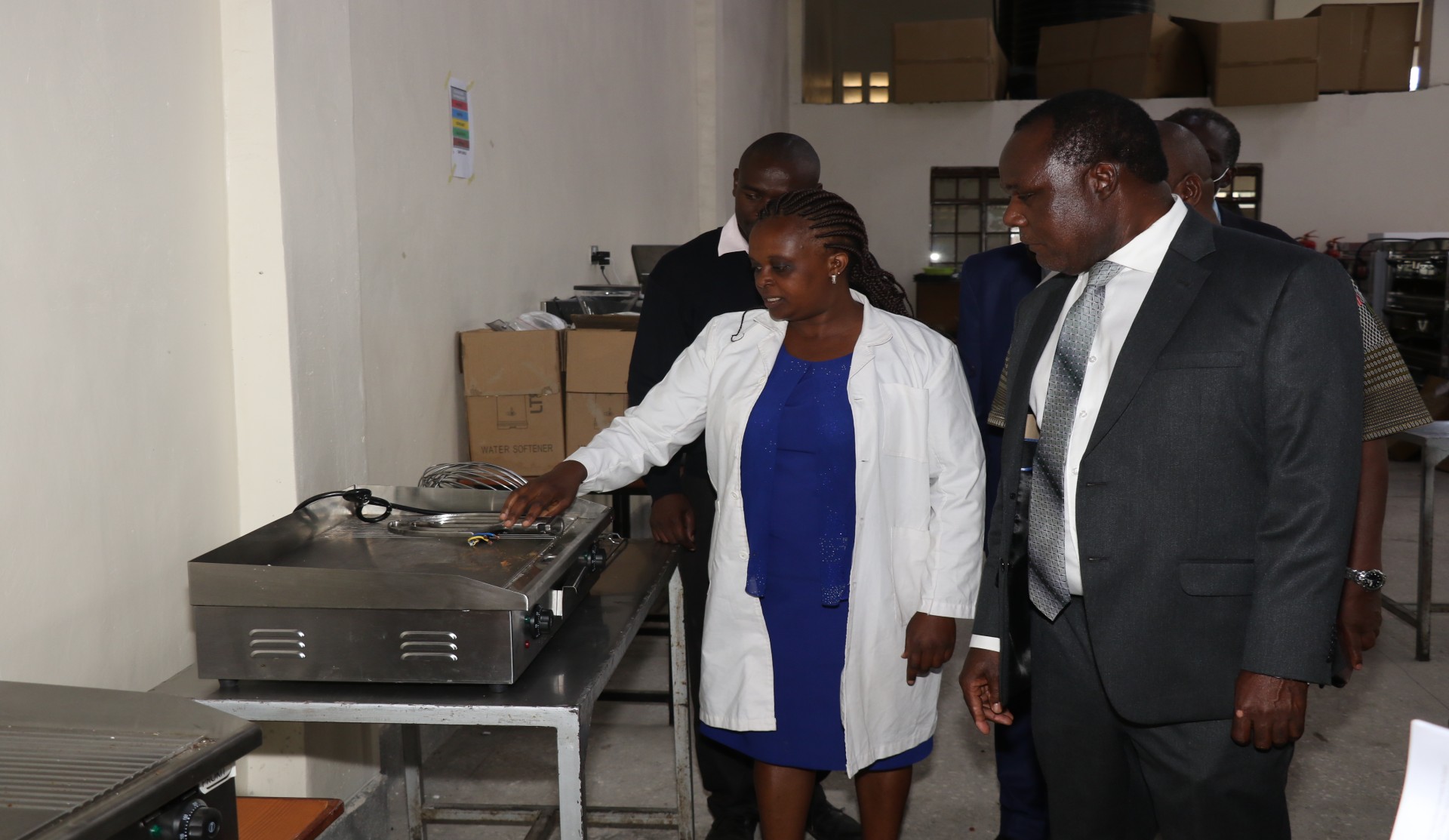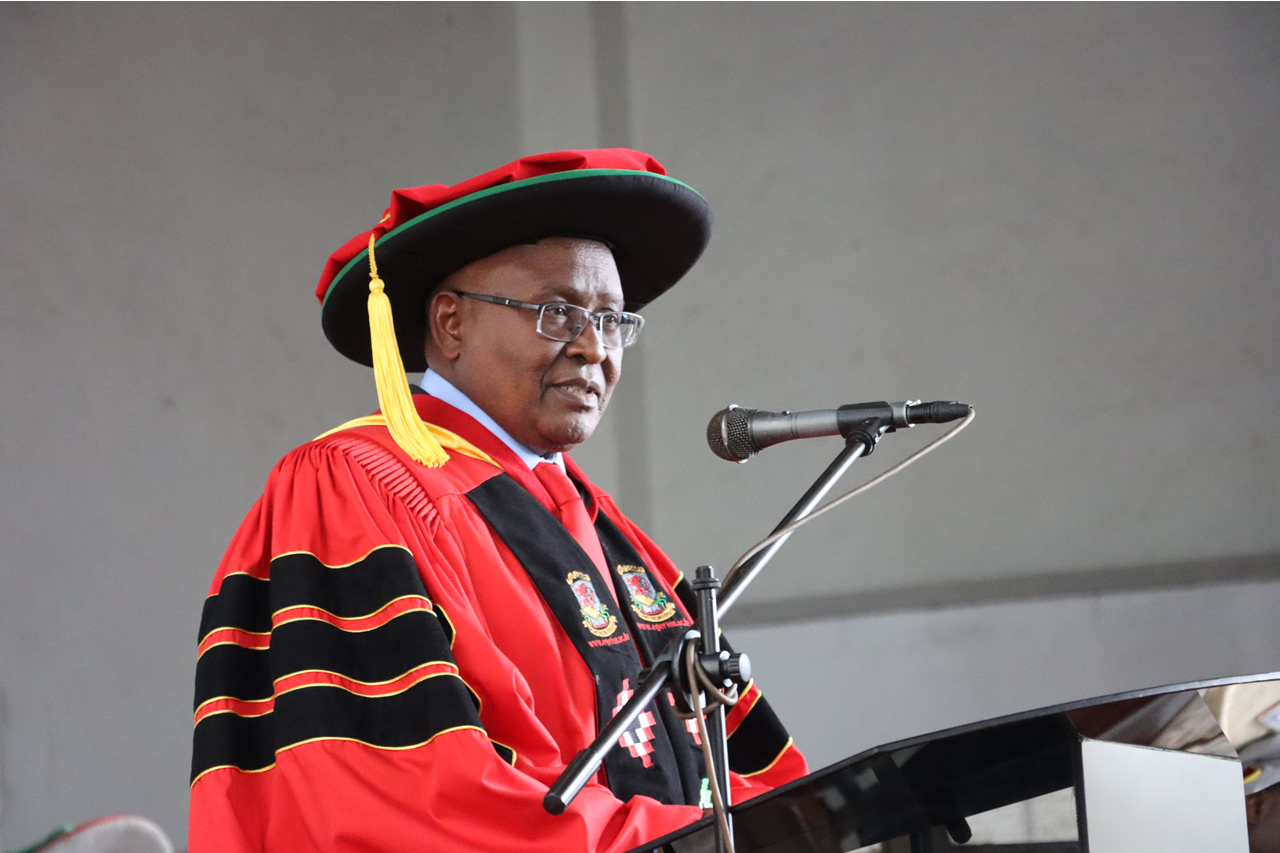Technical Vocational Education Training Institutions (TVETs) and polytechnics in the country have been advised to realign their curriculum with current and future industrial needs as the world transitions to the technological revolution.
Principal Secretary for the State Department of Industry in the Ministry of Investments, Trade, and Industry (MITI), Dr. Eusebius Juma Mukhwana indicated that the fast-evolving trends in technology and industrial revolution necessitated Kenyan TVETs and polytechnics to revise, rescale, and remodify their training programs to align them with market-driven skills required for industrialization.
While noting that the TVET Act 2013 provides for continuous development where teachers are expected to retrain so as to be able to retrain the students, Dr. Mukhwana stated that aligning training with industrial needs will have a ripple effect on the economy because businesses are likely to expand and create new jobs if they are able to find the talents they need.
“Skills that are acquired through TVETs and polytechnics can provide solutions to society, and improve on national development, food security and other spheres of life. We expect to see technical institutions producing research papers looking into the skills required in the future and the labor market trends,” he added
The Principal Secretary stated that a resolution by the United Nations General Assembly to make 2016-2025 a Third Industrial Development Decade for Africa (IDDA III) has opened a new chapter for Industrial progression in the region.
He said the move will target Agro-Value-Chain development, establishment of Special Economic Zones, and digitization.
Dr. Mukhwana made the remarks at the Kenya Industrial Training Institute (KITI) in Nakuru, where he addressed regional industrial development officers on the promotion of trade, strengthening of market linkages, and, the establishment of Aggregation and Industrial Parks in the Counties.
The Principal Secretary stated that the national government was supporting the creation of County Aggregation Industrial Parks (CAIPS) to help grow industrialization and middle income to provide a quality of life to all Kenyans by 2030 in a clean and secure environment.
He described County Industrial Parks as valuable for investment and magnets of technology that drive production adding that the national government was working with the devolved units and other partners to accelerate delivery of such parks across the country to promote investment, create employment, and boost exports.
Each county is expected to contribute Sh250 million and provide a minimum of 100 acres of land for the establishment of the Parks towards the implementation of the project in the next financial year. This will be used to fund the provision of electricity, water, effluent management, internet, security, and common transport.
There will also be an online portal through which traders will find markets for their products, both locally and abroad.
Dr. Mukhwana said the project will be implemented in two phases.
The PS said the government will also establish a Sh6 million fund to provide start-up capital to small-scale traders and youth under a program dubbed, “Viwanda Mashinani”.
Already, Sh100 million has been disbursed to Nakuru County for the construction of basic infrastructures. Other counties identified for the first phase of the project include Busia, Murang’a, Kakamega, and Kirinyaga.
The Principal Secretary noted that CAIPs are a farmer-centric and export-oriented approach that ensures small-scale farmers and producers contribute to the aggregation, marketing, and export of produce from across the country.
The “Viwanda Mashinani” program has attracted many partners and potential investors including Afro-Exim Bank, Equity Bank, Trade Mark East Africa, DHL, Tatu City, KNTC, Twiga Foods, and Kenya Industrial Research and Development Institute (KIRDI).
United Nations Industrial Development Organization (UNIDO), will provide technical assistance.
Dr Mukhwana disclosed that the establishment of the 47 CAIPS will ensure the aggregation of farm products and their direct sale to markets in and outside the country through a network of international logistics companies.
Dr. Mukhwana said Kenya views IDDA III as a vital complementary component in the realization of the AU Agenda 2063’s goals of prioritizing economic growth, industrialization, and employment generation over the next three decades.
The PS said that last year, some 250 projects valued at Sh8.5 billion were implemented in the region under the Third Industrial Development Decade for Africa (IDDA III).
Dr. Mukhwana noted that the Kenya Kwanza government is banking on the TVET Sub-sector to spur industrialization in Kenya.
“This explains the reason we have invested heavily in the sector so as to initiate a socio-economic revolution. The new funding model in TVET institutions will ensure equity and access to the TVET courses by all learners leaving no one behind,” said the PS.
In the 2023/2024 budget, TVET institutions were allocated Sh28.3 billion.
Dr. Mukhwana challenged technical institutes to partner with other stakeholders to further research and innovations by commercializing the innovation projects to provide value.
He said Research and Innovation are key in providing solutions to the country’s problems and more so key drivers in attaining fourth and eighth Sustainable Development Goals (SDGs).
“The importance of TVET in SDGs is emphasized on attaining a quality education that equips students with lifelong skills to enable them to secure decent jobs,” said Dr. Mukhwana.
The rallying call by the Principal Secretary reflects the aspiration of President William Ruto’s administration to empower technical training institutes so as to facilitate industrialization and the creation of jobs for the development of the various sectors.
In his pursuit to encourage the uptake of technical courses, Dr. Ruto announced plans to fund students allocated to join the institutions and double the funds allocated to TVETs.
Dr Mukhwana said sustainable development involves working with what available resources have in mind the future generations. TVET and polytechnic training, he added, should ensure that the curriculum, institutions, and culture are re-engineered towards attaining Sustainable development.
He assured of the government’s commitment to inclusivity and economic development by allocating substantial financial resources for the establishment of County Aggregation and Industrial Parks across all its 47 counties.
This is to enhance farmer incomes and ensure that all devolved Counties participate actively in the national industrialization agenda.
He said the industrialization drive also extends to target Agro-Value-Chain development, establishment of Special Economic Zones, and digitization.

